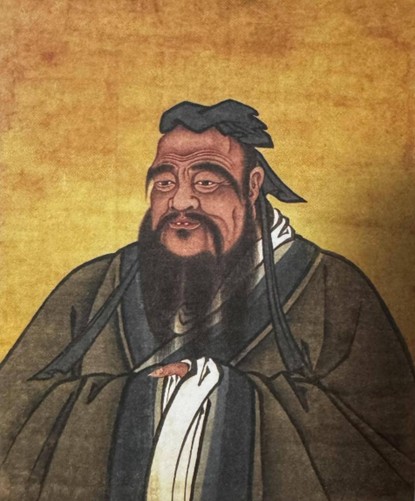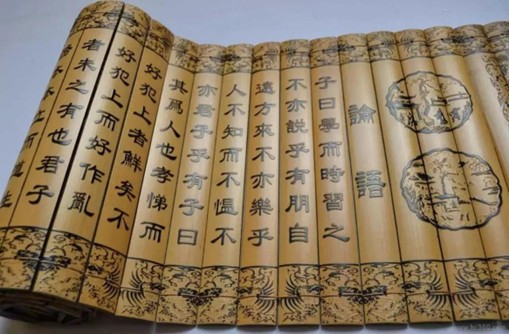Jinying Zang, Ph. D., Hangzhou Normal University, Hangzhou, ZJ, China.
Zhuohui Liang, Ph. D., Zhejiang University of Technology, Zhejiang, ZJ, China.
Lin Du, Ph. D., Tianjin University of Technology, Tianjin, TSN, China.
 The article Confucian guidelines for building an ageing society under China’s modernization process, published in Trans/Form/Ação (vol. 47, no. 6, 2024), discuss how China is integrating Confucian principles into its governance to address elderly care, promote social harmony, and enhance the quality of life for senior citizens.
The article Confucian guidelines for building an ageing society under China’s modernization process, published in Trans/Form/Ação (vol. 47, no. 6, 2024), discuss how China is integrating Confucian principles into its governance to address elderly care, promote social harmony, and enhance the quality of life for senior citizens.
China’s ascent as a global economic powerhouse has been remarkable, yet it has come with the significant challenge of an aging population (Bao, 2020, p. 82-87). With the number of elderly individuals expected to reach 370 million by 2030 (Tu et al., 2022, p. 1159), China’s social welfare systems are under increasing strain.
This demographic shift has prompted a reevaluation of traditional values and governance models, with a focus on how Confucian principles can be harmonized with modern policies to create a more caring and inclusive society for the elderly by tailoring social programs, for example, to encourage and facilitate their participation in the social, cultural, and economic spheres.
Confucianism, deeply rooted in Chinese culture, emphasizes “benevolence” and “filial piety,” advocating for the care and respect of the elderly. These principles not only provide a moral compass for policymaking but also offer a rich cultural foundation for improving elderly care. As Chen (2020, p. 99) suggest, integrating these values into modern governance can make elderly care more humane and align modern services with deeply ingrained cultural values.
The Confucian approach to elderly care is multifaceted, advocating for active aging, the enhancement of age-friendly environments and the encouragement of lifelong learning. These measures aim not only to improve the quality of life for the elderly but also to enrich the cultural fabric of society (Zhai; Li, 2019, p. 15-22).
The fusion of Confucianism with Daoist principles, which promote living in harmony with nature, is particularly significant. This synthesis strengthens societal bonds and aids in developing a comprehensive framework for an aging civilization (Xie; Wang, 2019, p. 17).

Imagem: Confucius
In terms of policy recommendations, there is a call for a robust elderly care service system and the establishment of pertinent laws and regulations. The development of a comprehensive elderly care system is essential to address the diverse needs of the aging population, including healthcare, social security and community support services.
This system should be designed to provide personalized care, respect for individual autonomy, and promote the overall well-being of the elderly. Additionally, the establishment of laws and regulations is crucial to safeguard the rights and interests of the elderly, ensuring they receive the care and support they need without discrimination or neglect.
Education and promotion are also highlighted as key to enhancing society’s sense of identification with Confucian and Daoist culture, through educational programs in schools, community centers, and public forums, the principles of filial piety, benevolence, and harmony can be taught and reinforced.
Public promotion campaigns can also play a vital role in disseminating the values of these philosophies, making them more accessible and relevant to modern life. The authors of the article believe that fostering a deeper understanding of these philosophies will encourage younger generations to respect and care for their elders.
This cultural shift is necessary to build a society that values its elderly members and supports their contributions, ensuring that they are treated with the dignity and respect they deserve. By integrating these traditional values into the fabric of society, China can create a more compassionate and cohesive community where all ages can thrive.
However, the authors also acknowledge the limitations of current governance models in addressing the aging population. They suggest that future research should focus on refining these models and offering more tailored recommendations to foster a civilized aging society. This involves not only emergency response plans to the issue of aging, but also the need to establish and deepen a cultural attitude towards aging and its top-level design philosophy (Hu; Zhang, 2018, p. 110).

Imagem: Confucius’s Analects
The challenge of an aging society in China is not merely a demographic issue; it’s a profound test of the country’s cultural values and its capacity to adapt these values to modern realities. The traditional Chinese value system, with its deep-rooted emphasis on respect for the elderly, offers a moral compass for crafting policies that support an aging demographic.
However, it is evident that relying solely on traditional values is insufficient in addressing the multifaceted needs of the modern elderly population. There is an urgent need to integrate these values with contemporary governance strategies to forge a more inclusive and compassionate society.
As China’s modernization progresses at an unprecedented pace, the imperative to care for its elderly population becomes increasingly critical. Yet, there lies potential in tapping into the country’s rich cultural heritage to foster a more inclusive and empathetic society.
By seamlessly integrating Confucian values into modern governance, China can potentially meet the needs of its elderly population while simultaneously preserving the cultural traditions that define its national character. This can be done in ways such as the development of policy frameworks that encourage intergenerational communication and learning, promoting a sense of community and shared responsibility, and the tailoring of social programs to facilitate active participation of the elderly in social, cultural, and economic spheres, enhancing their dignity and self-worth.
Moreover, leveraging technology to improve the quality of life for the elderly ensures they have access to modern healthcare, communication tools, and recreational activities, thus fostering an age-friendly society.
China’s approach to the aging challenge presents an opportunity to lead by example, demonstrating how cultural traditions can be harmoniously blended with modern governance to create a society that is both dynamic and respectful of its roots. As the country navigates this complex landscape, it has the chance to show that development can be inclusive, embodying the spirit of ancient philosophies while embracing the future, and setting a precedent for other nations facing similar demographic shifts.
In conclusion, the article by Chen (2020, p. 44-51) provides a thoughtful and nuanced perspective on the role of Confucian values in shaping China’s response to an aging society. It offers a compelling argument for the integration of traditional philosophies with modern governance strategies, demonstrating how such an approach can enhance elderly care and promote social harmony.
As China faces the challenge of an aging population, it has the opportunity to lead the way in creating a society that values its elderly and respects its cultural heritage. By integrating Confucian principles into modern governance, China can set an example for the world in how to address the challenges of an aging society with compassion, respect, and innovation.
To read the article, access
ZANG, J., LIANG, Z. and DU, L. Confucian guidelines for building an ageing society under China’s modernization process. Trans/Form/Ação [online]. 2024, vol. 47, no. 6, e02400316 [viewed 31 March 2025]. https://doi.org/10.1590/0101-3173.2024.v47.n6.e02400316. Available from: https://www.scielo.br/j/trans/a/vNRWMFSgrDbyM5j36g5qk6M/
References
BAO, C. Y. The problem of aging population in China and corresponding strategies – Taking Henan Province as an example. Zhongzhou Academic Journal. 2020, vol. 42, no. 4, pp. 82-87
CHEN, A. H., et al. Construction of a Friendly Environment in the Perspective of Active Aging. Science and Technology Journal. 2020, vol. 39, no. 8, pp. 44-51
HU, X. Y. and ZHANG, C. Q. The Causes and Countermeasures of China’s Deep Aging Society. Academic Exchange. 2018, vol. 34, no. 12, pp. 110-115
TU, W. J., ZENG, X. W. and LIU, Q. Aging tsunami coming: the main finding from China’s seventh national population census. Aging clinical and experimental research. 2022, vol. 34, no. 5, pp. 1159-1163
WANG, S. J. and SHU, L. Strategic Thinking on Actively Responding to the Aging of China’s Population. Journal of Social Sciences of Jilin University. 2018, vol. 58, no. 6, pp. 5-14
XIE, L. L. and WANG, B. Social participation patterns and influencing factors of the elderly in China from the perspective of active aging. Population Studies. 2019, vol. 43, no. 3, pp. 17-30
ZHAI, Z. W. and LIU, W. L. Population Aging: Current Situation, Trends, and Responses. Journal of Henan University of Education: Philosophy and Social Sciences Edition. 2019, vol. 38, no. 6, pp. 15-22
External Links
Trans/Form/Ação – Journal: Instagram | Facebook | Academia.edu
Como citar este post [ISO 690/2010]:













Recent Comments